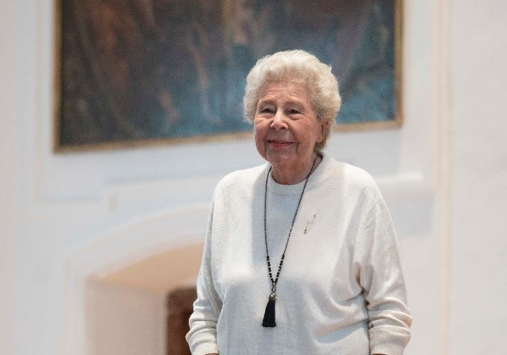Mourning the Death of Christa Ludwig

“Christa Ludwig was a legend, even during her lifetime. In opera, oratorio and lied alike, Christa Ludwig set inimitable standards with her vocalism and personality. The Salzburg Festival is infinitely indebted to her,” Artistic Director Markus Hinterhäuser expressed his grief at the wonderful singer’s death. Christa Ludwig gave the impressive number of 169 Festival performances – 126 opera appearances, 21 song recitals, 18 orchestral concerts and one matinee. In 1955 she made her debut as Second Lady in Mozart’s Die Zauberflöte. “Surprisingly good was the trio of ladies: Gerda Scheyrer, Christa Ludwig, who sounded excellent in the ensemble, and Hilde Rössel-Majdan,” remarked Karl Löbl in the Express newspaper.
That same year, she took over the role of the Composer in Karl Böhm’s legendary interpretation of Strauss’ Ariadne auf Naxos from Irmgard Seefried, earning accolades from reviewers and audience alike. Walther Friedländer wrote in the Frankfurter Allgemeine Zeitung:
“What is heard and seen of Christa Ludwig begs comparison with the most important role models: most precise voice control, utmost balance of sound and command of even the most intricate nuances; plus a bearing which fully expresses the role’s impetuousness. Christa Ludwig has become a great singer.”

During the following years, Christa Ludwig consolidated her reputation as the standard-setting personality in the Mozart and Richard Strauss fach. As Cherubino in Le nozze di Figaro, Dorabella in Così fan tutte, Octavian in Der Rosenkavalier and Ariadne in Ariadne auf Naxos, she enchanted Festival audiences. In 1969 she made her Festival role debut as Marschallin in Der Rosenkavalier at the Großes Festspielhaus, and the reviewers were raving: “For the first time, Christa Ludwig now sings the Marschallin in Salzburg. Since her Vienna debut under Leonard Bernstein, she has grown into the role in two ways, making it her own. (…) Never has Ludwig sung more beautifully in all registers, more emotionally in the top range, more colourfully in the middle and lower range,” Hans Heinz Stuckenschmied rhapsodized in the Frankfurter Allgemeine Zeitung.
The great conductor personalities of our times were Christa Ludwig’s artistic partners in Salzburg. Herbert von Karajan, Karl Böhm and Leonard Bernstein performed with her. All three loved, revered and cherished her as an artist. “She is simply the best, and the best of all possible human beings,” Leonard Bernstein said, speaking for millions of music lovers all over the world.
In 1993 Christa Ludwig took her leave of the Festival stage with one last song recital. It was Gerard Mortier who found the right words for this moving occasion: “Hier gilt’s der Kunst” – borrowing a phrase from Wagner’s Die Meistersinger von Nürnberg indicating absolute devotion to the arts. Christa Ludwig’s life as a vocalist might have been dedicated to this motto – in Vienna, in the world and in Salzburg, time and again.
Even after retirement from her active singing career, Christa Ludwig retained a close connection with the Salzburg Festival. Until recently, she shared her knowledge and experience with the younger generation, giving an annual master class as part of the Young Singers Project. The fact that she never avoided addressing the darker aspects of a singer’s life – for example the omnipresent fear for one’s vocal health – made her advice all the more precious and valuable in times in which casting shows suggest to young people that fame and riches are effortlessly attainable. Her next master class had been scheduled for 17 July 2021.
“The Salzburg Festival owes unforgettable artistic highlights to Christa Ludwig. She is one of the artists who ensured the Festival’s outstanding international reputation,” said Festival President Helga Rabl-Stadler. “As a tiny mark of our immense grief and gratitude, the Festspielhaus will be flying a flag of mourning.”





